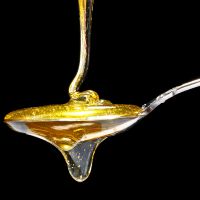Fructose Feeds Fat

Posted on July 13, 2016, 6 a.m. in
The simple carbohydrate is linked to increase in fat deposits and body weight.
Due in large part to an ever-increasing presence of high-fructose corn syrup in prepared foods, fructose – a simple carbohydrate derived from fruit and vegetables, has become a predominant component of the standard American diet. Researchers from the Beckman Institute for Advanced Science and Technology at the University of Illinois (Illinois, USA), studied two groups of mice for two-and-a-half months: one group was fed a diet in which 18% of the calories came from fructose – mimicking the intake of adolescents in the United States, and the other was fed 18% from glucose. Not only did the fructose-fed mice display significantly increased body weight, liver mass, and fat mass in comparison to the glucose-fed mice, they also were less active. The study authors report that: “The present study suggests that fructose per se, in the absence of excess energy intake, increases fat deposition and [body weight] potentially by reducing physical activity.”
Catarina Rendeiro, Ashley M. Masnik, Jonathan G. Mun, Kristy Du, Diana Clark, Ryan N. Dilger, Anna C. Dilger, Justin S. Rhodes. “Fructose decreases physical activity and increases body fat without affecting hippocampal neurogenesis and learning relative to an isocaloric glucose diet.” Scientific Reports, April 20, 2015.